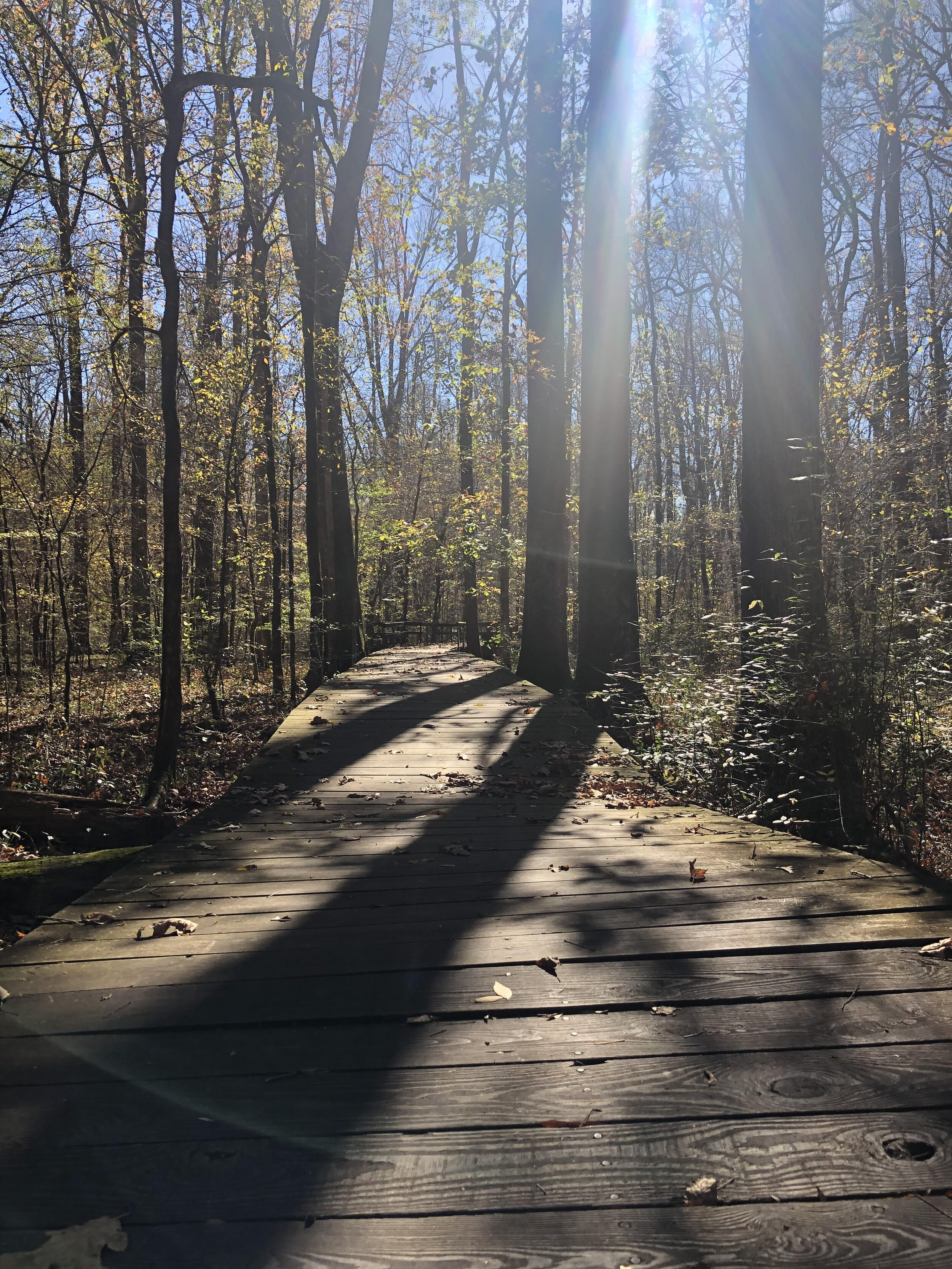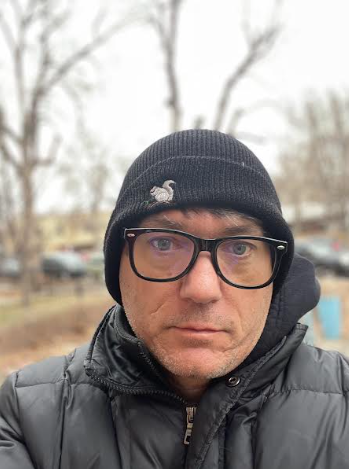
Who we are
Birdability Board of Directors
Lindsey Stone
Julie Euber
Maggie Dewane
Taylor Rubin
-
A Vermillion Flycatcher hunting in the front yard in 2011 sparked a love for birding in Lindsey (they/them) and they've been all about birds ever since. Lindsey's interest in accessibility was born out of their experiences as a physics teacher, and their passionate pursuit to increase access and remove barriers to learning for their students. They have a Master of Arts in Education and were awarded the Arizona Science Teachers Association's Novice Science Teacher of the Year in 2022. Currently, Lindsey is the Workforce Development Trainer for the Western National Parks Association, where they partner with the National Park Service to advance education, interpretation, research, and community engagement to ensure national parks are increasingly valued by all. They live in Tucson, Arizona with a librarian, 2 cats and 2 retired greyhounds.
-
ulie Euber enjoys exploring the intersection between birding, education, and mental health. In her day job, Julie is CEO of SARSEF, an Arizona nonprofit creating the state’s next generation of critical thinkers and problem solvers through science and engineering. Previously, she served as TGen’s Manager of Education and Outreach where she increased the community’s working knowledge of genomics and educated, trained, and inspired the next generation of researchers and physicians. She holds a BA in Anthropology and English with a minor in biology from Indiana University and earned her MA in Anthropology with a focus in Bioarchaeology from Arizona State University.
-
Maggie Dewane (she/her) is a writer and filmmaker who has traveled to all seven continents to understand climate change, conservation, and how both are impacting people. She has contributed to the Huffington Post’s climate series, “End of the Earth” and produced a short film on climate, “In Search of the Adelie Penguin." She co-hosts a wildlife podcast, The Watering Hole, and leads "Birds of Maine Islands" annual camp at Hog Island Audubon Camp in Maine. She currently works for the Center for Progressive Reform.
Previously, Maggie has worked for the Marine Stewardship Council and Environmental Investigation Agency, as well as the White House Council on Environmental Quality and United States Senate. She holds an MPA in Environmental Science and Policy from Columbia University and a BS in Diplomacy and International Relations from Seton Hall University.
Maggie is the daughter of avid birders, both of whom have disabilities that have at times inhibited their love of bird-watching and adventuring. Inspired by their love of the outdoors and unwavering determination, Maggie joins Birdability for them and the communities they represent.
-
Taylor (she/her) grew up outside of Washington DC and went to the College of William & Mary where she majored in biological anthropology. After graduating, she moved to Argentina working as a field research assistant studying tufted capuchin monkeys. She fell in love with biological field research and moved back to the states to get her master’s degree in neuroscience & animal behavior from Emory University. Continuing down the path of conservation education, Taylor started working in the education department at Zoo Atlanta. In a lucky twist of fate, Taylor got the opportunity to move into the Bird Department as a keeper at Zoo Atlanta and that’s when she fell in love with birds. Taylor moved to Tucson 3 years ago with her husband, cat, and dog and has been able to combine her love of birds, conservation, community engagement, and education as the Volunteer & Education Manager with Tucson Audubon Society. She believes that birds and the outdoors are for everyone and is passionate about making the birding & conservation world more inclusive, diverse, equitable, and accessible.
Mike Greene
Virginia Rose
Bee Redfield
Alex Schiwal
-
Bee Redfield (she/her) is a community-focused avian ecologist who fell hard for corvids (the family that includes crows and jays) while studying them in Hawai’i and the Channel Islands of California. Her research focuses on the way that birds play key roles in the ecosystem services that contribute to habitat restoration, such as pollination and seed dispersal. Bee loves the way that birds, and birding, can bring together people of diverse backgrounds, experiences, abilities, and viewpoints, all over a shared passion for these magical creatures.
Bee has worked for many years studying, teaching, and doing research with Purdue University (go Boilers!) and holds dual master’s degrees in conservation biology and in human resources management. She has also volunteered with a retired racing greyhound rescue for over a decade. When she’s not working with birds or with dogs, she’s out hiking or traveling with her own three loveable mutts.
-
Alex Schiwal (she/her) grew up in Utah and western Montana, spending most of her time with her grandparents. She majored in Psychology and Gerontology at the University of Montana, going on to earn her PhD in Human Development and Family Studies (Adult Development and Aging) at Utah State University. Alex worked as a caregiver, direct support professional, and hospice respite caregiver while pursuing her education. She currently works as a researcher at the Institute for Disability Research,
Policy, and Practice focusing on applied programs delivering accessible and inclusive services and supports to people across the lifespan.
Alex has always enjoyed being in nature, but her love for birding grew during grad school where it became her primary hobby and mental health outlet. She shared this hobby with her grandparents towards the end of their lives and frequently goes birding with her sister who has intellectual and mobility disabilities. Alex believes that everyone deserves access to things that enrich their lives, connect them with others, and the world around us. She is thrilled to support the mission of Birdability, and is dedicated to reducing barriers and improving access for all. Alex currently lives in western Montana with 2 dogs, 1 cat, and 14 chickens.
-
Mike Greene (he/him) is a birder who accommodates mobility disabilities and a few too many chronic illnesses. He is a Professor of Integrative Biology at the University of Colorado Denver and he lives in central Denver, Colorado. He studies how ant societies self-organize their activities and teaches first-year general biology courses. Mike once helped to send ants to the International Space Station and had the pleasure of having lunch at a field station with David Attenborough. He is a proud father and husband. Mike is also a drummer in Denver-based bands Paper Knees and Overland Trailraiders. Mike is excited to contribute to the mission of Birdability in an effort to promote accessibility and inclusion of us disabled folks in one of his favorite hobbies. Mike’s favorite bird is the cedar waxwing. three loveable mutts.
-
Virginia (she/her) fell off a horse at the age of 14 which resulted in a spinal cord injury. A wheelchair user ever since, she began birding 17 years ago and discovered her best self in nature. She leads accessible bird outings for Travis Audubon and at the Rio Grande Valley Birding Festival each year.
As a retired high school English teacher, she is passionate about bringing the same joy, empowerment and community she found in birding and nature to others who have mobility challenges.
You can read more about Virginia’s story through numerous articles about her published in birding magazines, linked under Press and Publicity.
Staff
-
Cat Fribley (she/her) is the Executive Director of Birdability. Her background in non-profit development merged with her love of birds and birding and her commitment to disability rights all make her uniquely suited for the role. Cat began birding for mental health and healing in college after a PTSD diagnosis, and had to find new ways to access birding as her form of joy and mindfulness in the natural world after a series of physical injuries and illnesses left her with limited mobility. Her own experiences trying to determine accessible birding opportunities while visiting all 50 states before she turned 50 years old made her acutely aware of the important work of Birdability and especially the Birdability Map, a resource she sorely needed back then, and is passionate about now!
Birdability Captains
Our wonderful, international network of Birdability Captains are volunteer birders interested in actively working to improve inclusion and accessibility in their communities. They may do this by intentionally seeking out potentially accessible birding locations and completing Birdability Site Reviews to populate the Birdability Map, or by holding accessible birding outings. Learn more about the network and consider applying today through our online form!









